Friday, 31 January 2020
Facebook, Tiktok, Twitter tackle coronavirus fake news
from BBC News - Technology https://ift.tt/2RK6QM9
Trump's expanded travel ban: Which countries are affected?
source https://www.aljazeera.com/news/2020/01/trump-expanded-travel-ban-countries-affected-200131212513800.html
Taiwan's female politicians forge path to equality
source https://www.aljazeera.com/news/2020/01/taiwan-female-politicians-forge-path-equality-200131033602459.html
Show HN: An open souce graph database written in Prolog and Rust https://ift.tt/2GK6aQI
Trump heads for expected acquittal after witnesses blocked
source https://www.aljazeera.com/news/2020/02/trump-heads-expected-acquittal-witnesses-blocked-200201021036786.html
Show HN: Musilinks – Interactive musical artist relationship discovery https://ift.tt/2GObCBT
'Muslim ban should end, not expand': Groups slam Trump travel ban
source https://www.aljazeera.com/news/2020/01/ban-expand-groups-slam-trump-travel-ban-200131172918069.html
Show HN: Mobile browser with different browsing mechanism https://ift.tt/2RJVbNw
China coronavirus death toll surges: All the latest updates
source https://www.aljazeera.com/news/2020/01/china-coronavirus-death-toll-surges-latest-updates-200131232932230.html
Brexit: UK officially leaves the European Union
source https://www.aljazeera.com/news/2020/01/brexit-uk-officially-leaves-european-union-200131211418625.html
Changing the narrative of hospital circumcision shame
Changing the narrative of hospital circumcision shame
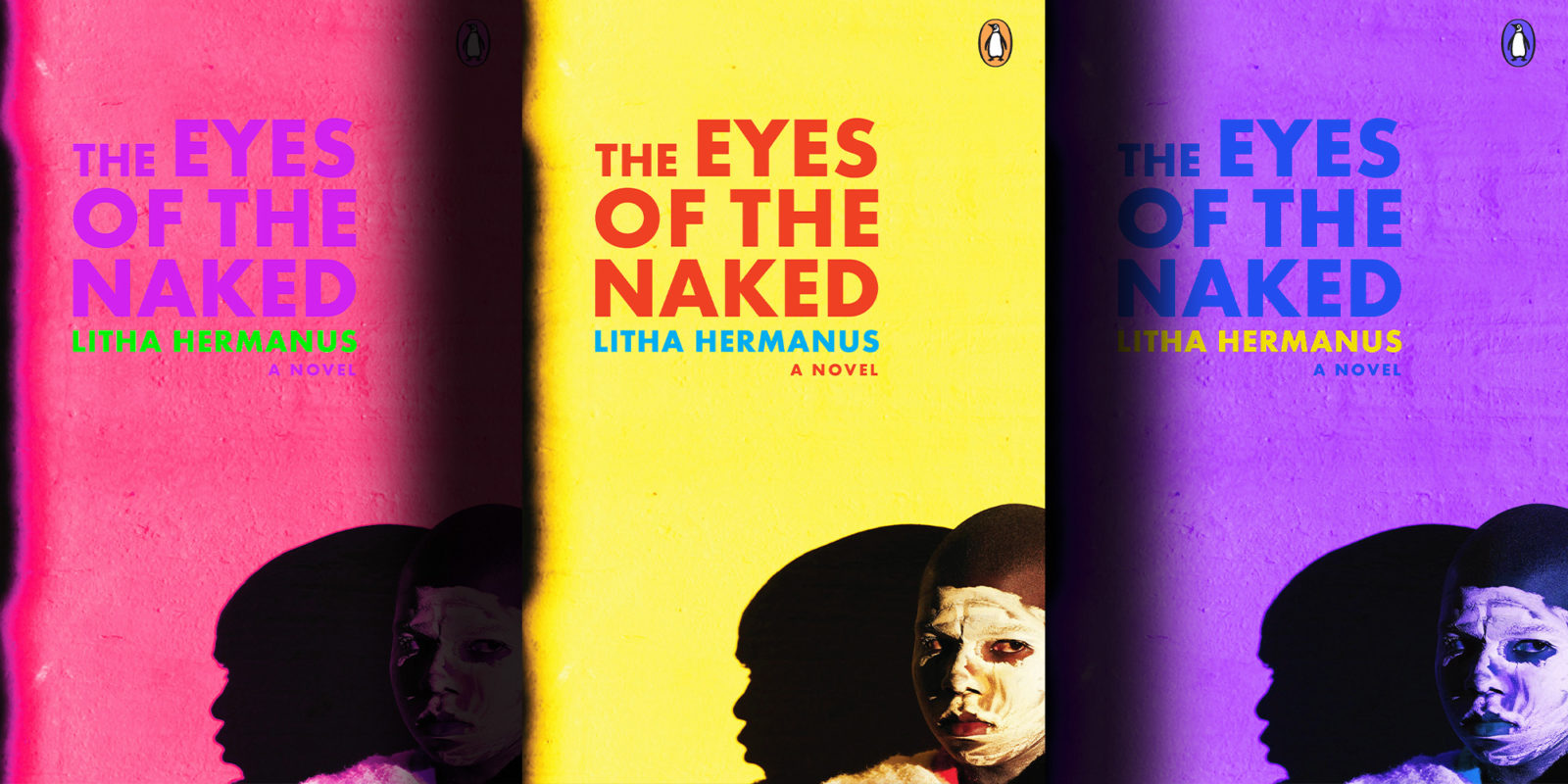
The boy was being attended by a medical doctor. A permanent grimace was on his face. He swayed his head side to side, his body failing to hold back shudders, in the manner of one managing extreme pain.
Like the rest of us, he was naked under a white blanket. But his was held open. As I passed close to him, I understood why his face signalled more agony than should’ve been present with the loss of a foreskin. He’d lost more than that. What was left was like a sausage on a flaming grill, the meat inside it swollen and ready to split open its casing. The member was gangrened; soon to be amputated.
The look in the boy’s eyes can be best described as a desperate, voiceless cry. Someone he trusted had thrown his life off a high cliff, and he didn’t know how he’d ever stop himself from falling. All seemed over but death.
****
I was 18 years old when I got the cut. The custom isn’t something I’d sought with enthusiasm. While it was expected, it wasn’t considered of utmost importance in my family.
Besides, my father had done it. And I had two older brothers. The eldest was enthralled with the idea. Because he was a pre-marital child, he was raised by our grandmother in the rural Transkei until high school. So his ideas around manhood were formed on what one might call culturally rich ground.
Still, the cut was not something discussed much at our house.
I would come to find out that even in my father’s own youth it was downplayed. Unlike when he was younger though, something changed. The men with whom he worked and socialised by the time I came of age were conscientious with their customs. As we approached my date, fights ensued between my parents regarding the event.
My father was baying for traditional blood. Over my mother’s dead body!
This was in 1994, before the many reforms that would be introduced to the custom. A time when botched jobs existed, as they do now, but alongside rampant HIV infection, in the deadlier days of the disease.
Fortunately, a relative had farmland. I was allowed to use a mud-and-thatch hovel on his farm along with two other initiates. It wasn’t “the mountain”, or a glade in some forest, but its redeeming factor was precisely in that it wasn’t a backroom from where I could hear my own mother.
Still, this was not the age-old way of erecting one’s own grass-dwelling, and burning it down when emerging as a “man”. These things mattered.
****
And so it is that my experience with traditional manhood is knotted with angst. And not for nothing… Over and above the choices made by my parents I have my own indiscretions.
In certain contexts, my status renders me a boy: a persona-non-grata – a dog. (Woof!)
Firstly, my attacker was a childhood friend. I still considered him one; certainly not a foe. Yet, when we encountered each other for the first time after our respective hibernations, he lashed out in a vitriolic way. But there were mutual friends about. They made sure the incident didn’t escalate beyond words. I would have gladly cleaned the Holiday Inn parking lot with his smirk. It didn’t matter though; he’d already won. The source of our public disagreement was rooted in my “shame”.
But even odder than being attacked by a one-time friend was the following:
While my accuser was a “mountain man”, two of the guys with him weren’t. We’d seen each other at the hospital on a couple of occasions. This was either for the cut or during check-ups. Yet, their friend didn’t know their secret. And it wasn’t my place to expose them.
I’d soon find out how much pressure was felt by Xhosa initiates around this issue. Lying about the authenticity of one’s circumcision experience is more common than you might think. It’s a viable (though precarious) way of mitigating the backlash of humiliation, violence, or being ostracised.
Generally speaking, all boys want to become men the “real” way. However, for most, it’s parents who decide which side of the blade their manhoods will fall on – the side of “the spear” or that of “the scalpel”. Parents should be duty-bound to the lives of their children, before they are servants to culture. Their decisions should hinge highly on the state of safety evident or lacking within the ritual.
For his own part, my father understood the trials and tribulations of living among traditionally solidified men with litanies of clan names, while being something far from that. I’m more concerned with the project of personal decolonisation. I’ve come to find moral decrepitude in being in a cultural wilderness and doing nothing about it.
Had I the power to relive the custom, would I make different choices from the ones made by my parents? Yes! But, while on the side of the “authentic” cultural experience lies the glory, the way to it is paved with the scariest possibilities of disfigurement and death. Surely both are worse than “shame”.
I’ve often vacillated between absorbing and disregarding my so-called shame. But I’ve come to dismiss it because the memory of the gangrened initiate has allowed me to do so, more and more over time. The following is no small realisation:
My parents were right in their choice to protect me. The mutilated boy I saw that day could easily have been me. I should think in the very same way regarding my son.
****
Things have improved though. My gangrened initiate faced his tragedy 20 years before Prof Van der Merwe’s team at Tygerberg Academic Hospital were successful with the inaugural penis transplant. Still, sane minds would favour a rise in safer traditional circumcisions than in transplants.
Another improvement is that since 2005, male circumcision for those under 18 has been regulated by the Children’s Act. It’s a protective framework for under-18 boys and even those under 16. Medics are also sent to check on the health of the boys in licenced schools, in order to mitigate hazards.
Some schools, though, evade the law. In the past, Prince Mahlangu – member of the CRL Rights Commission – has suggested that out of all existing schools, only 2% are problematic. Is it honestly this number that’s responsible for the epidemic of approximately 300 amputations and 8,000 hospital admissions over the last 12 to 13 years, according to the Medical Brief?
In 2018, it was reported that Nelisile Nongqa’s sons in Gabazi (Eastern Cape) were attacked in their sequestered state as initiates, because one of them had previously tried his circumcision at a hospital. He was brutally beaten, on his newly circumcised member, and all over his body. The irony? He was punished for doing a manly thing: righting a previous wrong, and this was reportedly at a legal school.
In the last two months, over 20 deaths were recorded during the recent initiation season. The CRL Rights Commission even called for the immediate suspension of certain schools in the Eastern Cape. Fact: schools may only be “suspended” if they’re licenced. The two examples above beg the question: Should one feel safe simply because a school is considered legal? No!
Another question: Is there a way of keeping this process traditional while lessening the degree of danger? There are many thoughts out on this, but here are mine:
Manhood needs to be redefined and codified if we are to continue doing this, without being accomplices to injustice. Manhood needs to be intentionally imbued with timeless values, but also a strong sense of what it means to be a man in today’s local and global world, in utilitarian and progressive ways. The institution hinges on much more than one’s activity over four weeks of hibernation in the bush.
And let no MAN continue to feel bad for going to the hospital. The custodians of the culture are the reason our parents sent us there. By feeling humiliated for going to the hospital we allow ourselves to be taken hostage for decisions that were not ours to make. Furthermore, we allow ourselves to be taken hostage by those who cause the conditions that compel our parents to send us to hospitals in the first place.
Let’s rise up with purpose and show that manhood is deeper than a cut. Do not be me! By feeling humiliated by my accuser all those years ago in a Holiday Inn parking lot, I did something I should never have done. I allowed myself to hear the logic of a lion in the bleating of a sheep. DM
Litha Hermanus is the author of The Eyes of the Naked – a political and psychological novel, published by Penguin Random House. Follow him on Twitter @Lithahermanus
Coronavirus
The virus can be spread when an infected person coughs or sneezes. Hand-washing is a first line of defence
by Hannah Devlin Science correspondent and Ellen Wishart
How is the coronavirus spread?
The Wuhan coronavirus outbreak is a new illness and scientists are still assessing how it spreads from person to person, but similar viruses tend to spread via cough and sneeze droplets.
When an infected person coughs or sneezes, they release droplets of saliva or mucus. These droplets can fall on people in the vicinity and can be either directly inhaled or picked up on the hands then transferred when someone touches their face, causing infection. For flu, some hospital guidelines define exposure as being within six feet of an infected person who sneezes or coughs for 10 minutes or longer.
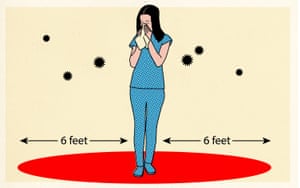
Viruses can also be spread through droplets landing on surfacessuch as seats on buses or trains or desks in school. However, whether this is a main transmission route depends on how long viruses survive on surfaces – this can vary from hours to months.
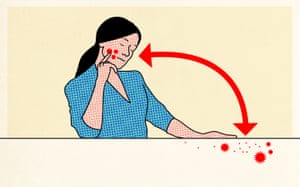
There is anecdotal evidence that the virus can be spread by people before they have symptoms. Some other illnesses such as flu can be passed from one person to another before symptoms occur – but the extent to which this is happening with the Wuhan coronavirus is not well understood yet.
How to protect yourself and others
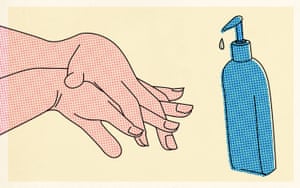
Wash your hands: wet your hands with clean, running water and apply soap. Lather your hands, including the backs, between your fingers, and under your nails and scrub for at least 20 seconds. Rinse.
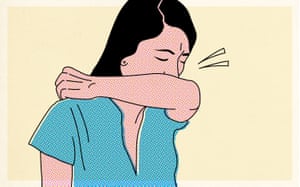
Cover your mouth and nose with a tissue when you cough or sneeze, then throw the tissue in the bin and wash your hands. If you do not have a tissue to hand, cough or sneeze into your elbowrather than your hands.
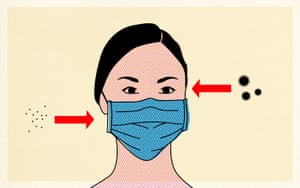
Face masks offer some protection as they block liquid droplets. However, they do not block smaller aerosol particles that can pass through the material of the mask. The masks also leave the eyes exposed and there is evidence that some viruses can infect a person through the eyes.
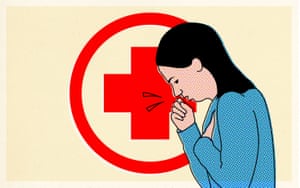
Seek early medical help if you have a fever, cough and difficulty breathing, and share your travel history with healthcare providers.
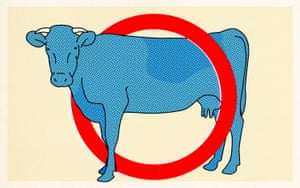
If visiting live markets in affected areas avoid direct, unprotected contact with live animals and surfaces that have been in contact with animals.
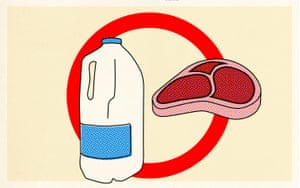
If you are in an affected area avoid eating raw or undercooked animal products and exercise care when handling raw meat, milk or animal organs to avoid cross-contamination with uncooked foods.
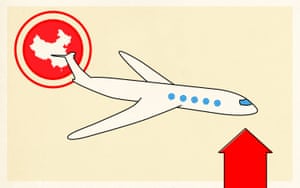
If you have returned from an affected area in China in the last two weeks, stay indoors and avoid contact with other people for 14 days. This means not going to work, school or public areas.
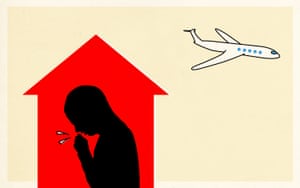
If you have returned from an infected area and develop a high temperature, cough, runny nose, sore throat or difficulty breathingdo not leave your home until you have been given advice by a doctor. SOURCE: THE GUARDIAN
How does coronavirus spread and how can you protect yourself?
source https://www.aljazeera.com/news/2020/01/coronavirus-spread-protect-200130115539072.html
Turkey: Greek MEP who ripped Turkish flag to face probe
What will the UK look like a decade after Brexit?
source https://www.aljazeera.com/indepth/features/uk-decade-brexit-200131052333187.html
Indian villagers beat wife of hostage-taker to death
source https://www.aljazeera.com/news/2020/01/indian-villagers-beat-wife-hostage-taker-death-200131064644284.html
'Invasion Day' seeks to reclaim what Aboriginal Australians lost
source https://www.aljazeera.com/news/2020/01/day-seeks-reclaim-aboriginal-australians-lost-200130073732469.html
WHAT IS BREAKOUT → RE-TEST?
Breakout: When the price breaks a support or resistance level that it has tested before and moves above or below that level. Re-...

-
By Hallie Knight , Published in Poem-a-Day on January 23, 2021, by the Academy of American Poets. The house was built, Brick by brick, p...
-
In a new book, translated by Molly Ringwald, Maria’s cousin recalls the fame and turbulence that followed the release of Bernardo Bertolucci...